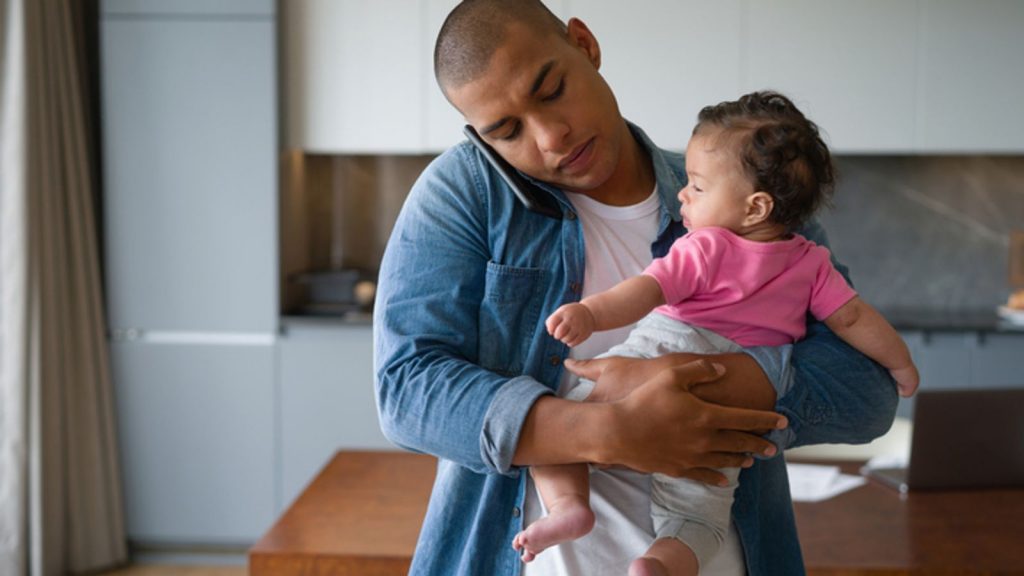Nearly half of UK children now growing up outside ‘traditional’ family
Nearly half of UK children now grow up outside a traditional nuclear family, according to a major study.It found 44% of those born at the start of the century didn’t live with both biological parents their entire childhood – a marked change from 21% for children born in 1970.
The UK also has a greater proportion of one-parent families compared with most European nations.The findings are from the Independent Family Review by England’s Children’s Commissioner.It says families have “changed significantly in recent decades” and that co-habitation has become more common as an alternative to marriage.
More mothers than ever are also now in work and family composition “varies significantly according to region and ethnic background”.Whatever the family type, the review says they can have a “protective” effect in tough times and that it is the quality of the relationships that matters.
More from UK
“Strong families, even without extensive economic means, can provide insulation against external challenges such as poverty,” says the review – which urges the government to put families at the heart of policymaking.There were about 8.2 million families with children in the UK in 2021, the study found.
Advertisement
Sixty-three percent were married couples, 14% were co-habiting couples, and 23% lone-parent families (compared with an average 13% in Europe) .About 90% of lone-parent families were headed by women.Read more: Robots could help detect mental wellbeing issues in children, study findsThere were also significant differences by ethnicity: 57% of black Caribbean and 44% of black African families were lone parents – compared with 22% for white British families.The proportion of lone parent families is significant as the study says they are more likely to experience financial problems.Asian and Asian British families were most likely to be in a traditional family set-up, according to the review.For example, only 11% of Indian families were headed by a lone parent and 87% fell into the “married or civil partnership” category.Spending time with family is associated with greater wellbeing, according to the study, and data suggests parents of families who eat dinner together at least six times a week are more happy with their life.Children’s Commissioner Dame Rachel de Souza will say in a speech later that the government should not be “squeamish” to focus about families.”Investing in family is the single greatest investment you can make,” she will tell the Policy Exchange.”If we do it right it is self-sustaining unit and there to catch us when we fall, and if you are part of a strong family, you cast your net wider to catch others.”I am calling on everyone to put family centre stage of their agenda.”If we get this right at a critical moment for families across the country, we will benefit generations to come and change children’s lives.”Part two of Dame Rachel’s review is still to come and is expected to look at how public services can be designed to support families’ needs.

Nearly half of UK children now grow up outside a traditional nuclear family, according to a major study.
It found 44% of those born at the start of the century didn’t live with both biological parents their entire childhood – a marked change from 21% for children born in 1970.
The UK also has a greater proportion of one-parent families compared with most European nations.
The findings are from the Independent Family Review by England’s Children’s Commissioner.
It says families have “changed significantly in recent decades” and that co-habitation has become more common as an alternative to marriage.
More mothers than ever are also now in work and family composition “varies significantly according to region and ethnic background”.
Whatever the family type, the review says they can have a “protective” effect in tough times and that it is the quality of the relationships that matters.
“Strong families, even without extensive economic means, can provide insulation against external challenges such as poverty,” says the review – which urges the government to put families at the heart of policymaking.
There were about 8.2 million families with children in the UK in 2021, the study found.
Sixty-three percent were married couples, 14% were co-habiting couples, and 23% lone-parent families (compared with an average 13% in Europe) .
About 90% of lone-parent families were headed by women.
Read more: Robots could help detect mental wellbeing issues in children, study finds
There were also significant differences by ethnicity: 57% of black Caribbean and 44% of black African families were lone parents – compared with 22% for white British families.
The proportion of lone parent families is significant as the study says they are more likely to experience financial problems.
Asian and Asian British families were most likely to be in a traditional family set-up, according to the review.
For example, only 11% of Indian families were headed by a lone parent and 87% fell into the “married or civil partnership” category.
Spending time with family is associated with greater wellbeing, according to the study, and data suggests parents of families who eat dinner together at least six times a week are more happy with their life.
Children’s Commissioner Dame Rachel de Souza will say in a speech later that the government should not be “squeamish” to focus about families.
“Investing in family is the single greatest investment you can make,” she will tell the Policy Exchange.
“If we do it right it is self-sustaining unit and there to catch us when we fall, and if you are part of a strong family, you cast your net wider to catch others.
“I am calling on everyone to put family centre stage of their agenda.
“If we get this right at a critical moment for families across the country, we will benefit generations to come and change children’s lives.”
Part two of Dame Rachel’s review is still to come and is expected to look at how public services can be designed to support families’ needs.


